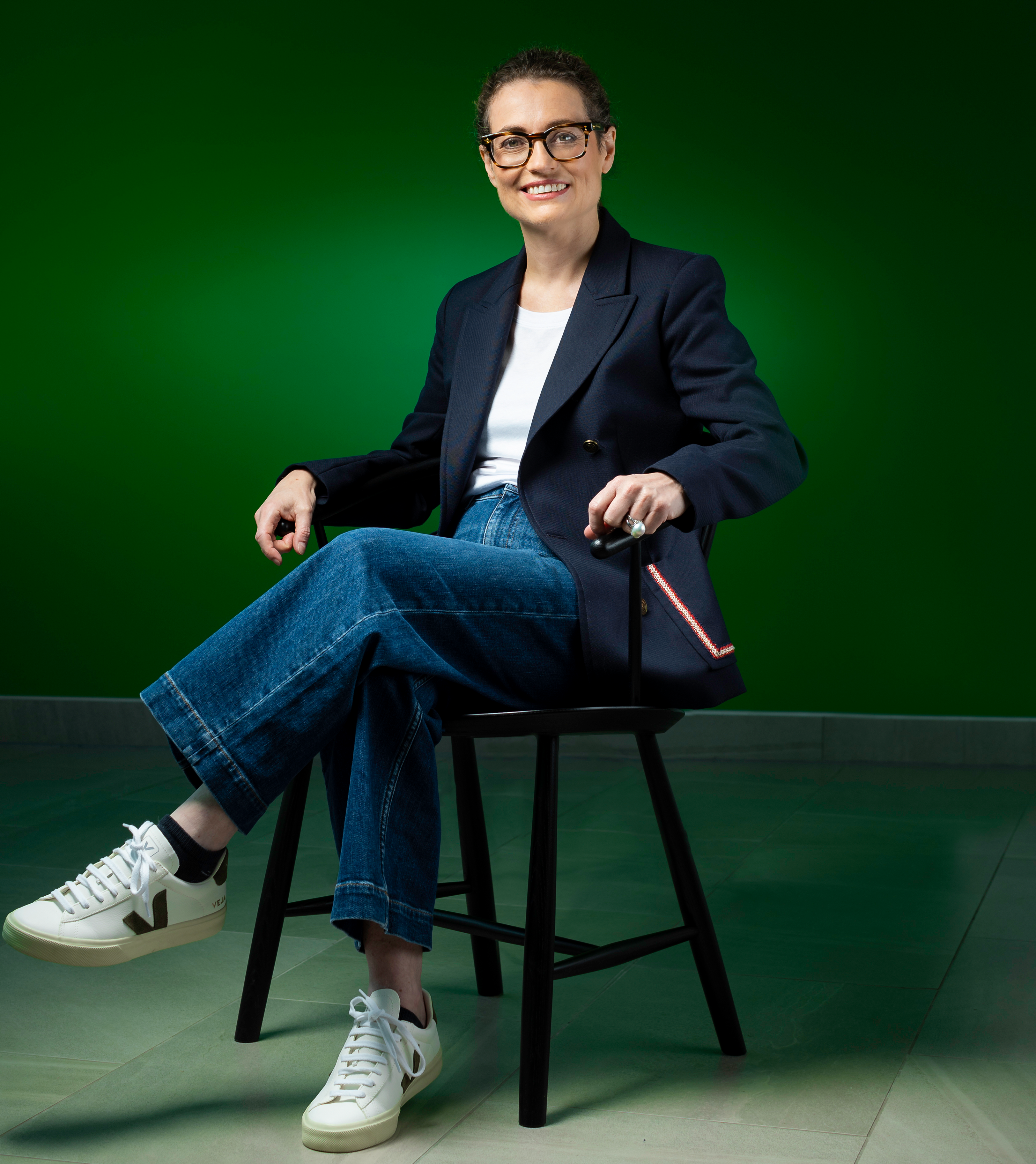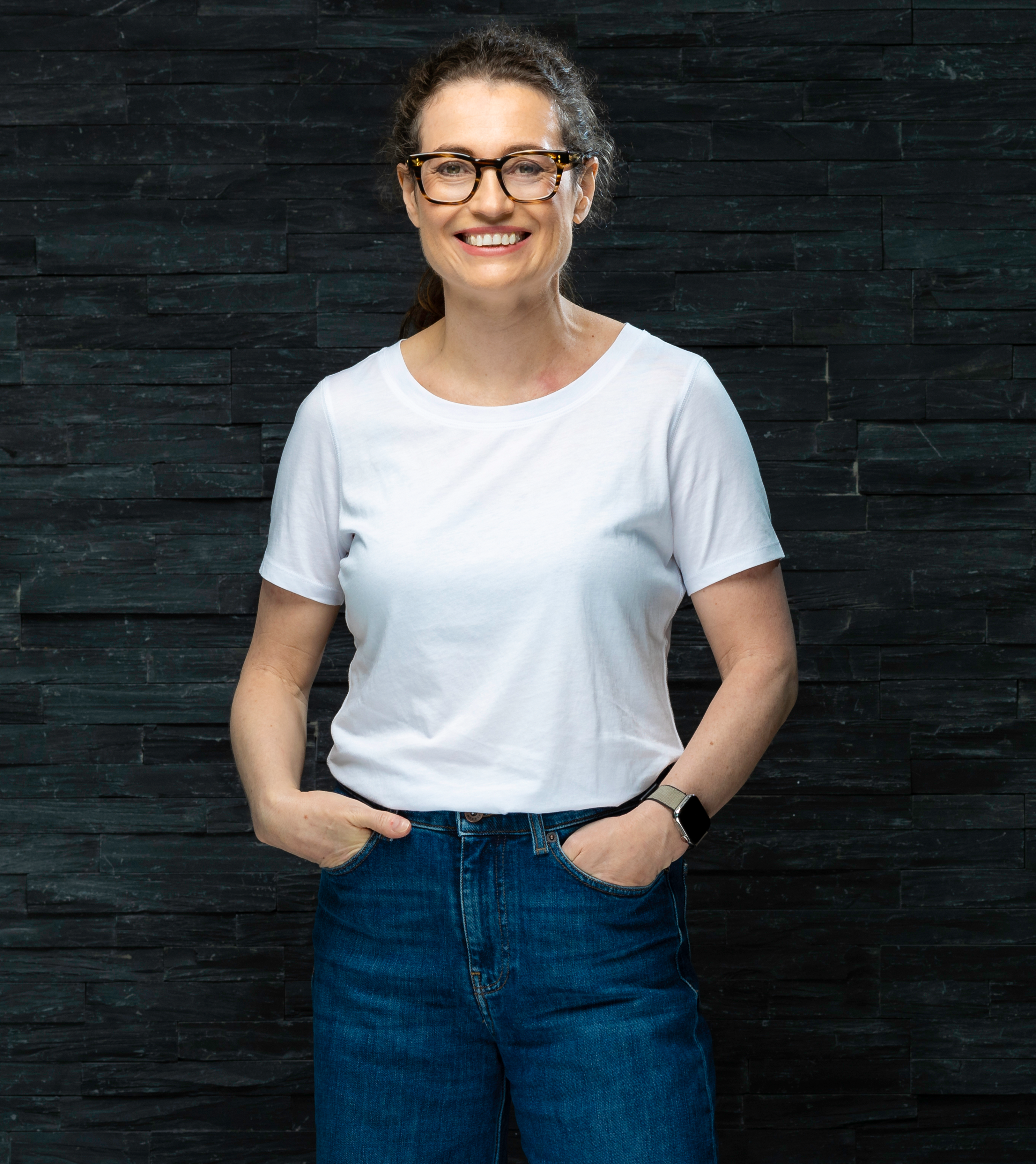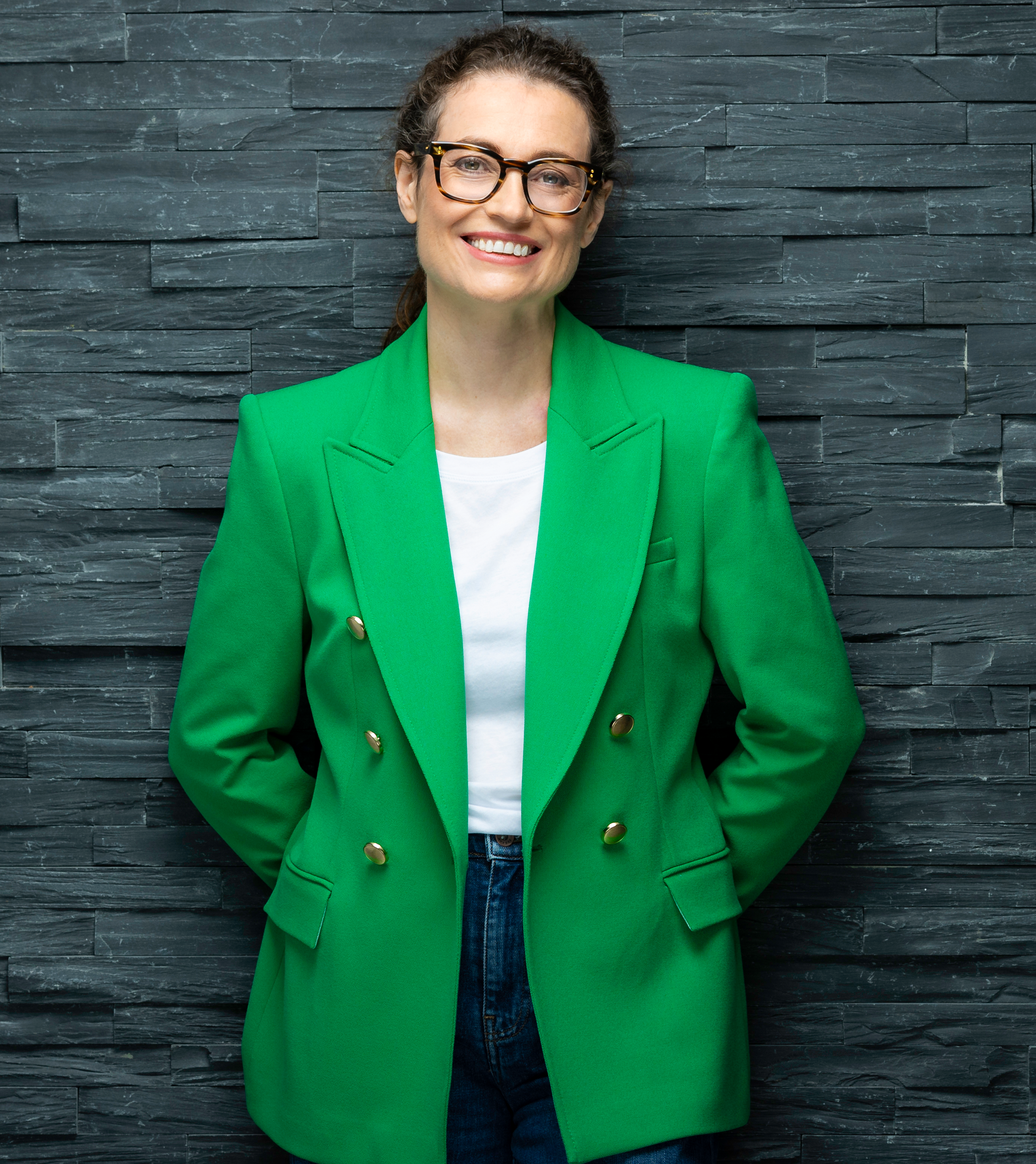“We are moving towards achieving net zero on a massive scale and we’re evolving and broadening the scope of our business to support this”

“We are moving towards achieving net zero on a massive scale and we’re evolving and broadening the scope of our business to support this”
I left school at 16 years old, directly after sitting my O-Levels, now referred to as GCSEs. My parents had moved across the country in my last term at school which, quite naturally, I found disruptive, as I had to take exams at a new school and didn’t have the chance to cement new friendships. Consequently, I really didn’t feel compelled to stay on to study for A-levels and so decided to look at options in the big wide world of work. I joined an apprenticeship programme at an insurance company called Commercial Union and almost immediately, my mind was set on what I needed to do to build a career. At this stage, the two paths open to me were in finance and what was then called personnel. I was veering towards finance, when in truth, my heart was set on a more people-oriented role. Also, I felt that in the finance setting, I was the odd one out, having not gone to university. So, I decided to take action and I chose personnel, joining BT as a member of their employee administration team. Reflecting, these early experiences and the inequalities associated with educational background have stayed with me and I’ve actively worked to change those perceptions and mindsets ever since. Personally, I was lucky! I was motivated, made some good choices and, most importantly, I was helped by people who could see my potential. But that’s not always the experience for people. For many years I felt self-conscious that I had not immediately gone to university, but now I believe it’s made me who I am today and I’m really keen to share my learnings to help guide and encourage others to look beyond traditional career routes.

Agreed and I’m really passionate about social mobility and education – and I think it’s incumbent on all of us to not just do a great job for the company that you work for, but to have an impact more broadly in society. Education and social mobility are two areas of this kind that are fundamentally important to me. Going back to my time at BT, I was studying for my A-Levels at night school, as well as my CIPD exams and I also took a Higher National Certificate in Business. I really was burning the candle at both ends. So later I chose to leave BT and I fulfilled my ambition to complete my education and undertake an MBA at Henley Business School. By then I decided to focus on the degree full time. Looking back, joining BT was a lucky break because, working in the research laboratories made me curious and opened my eyes to diversity, cultures, different environments and types of people. Then an opportunity came along to move into the global business and I jumped at it. At the time, the telecoms market was deregulating and was expanding into Europe and Asia and so the timing was perfect for somebody like, me who had global aspirations. I moved into the global business, working across a number of joint ventures that BT was building in Europe. For example, I was based in Italy as BT was building its telecoms operations. I was learning new languages and was emersed in different cultures. Moving from Italy, I was subsequently seconded to various projects in Asia which broadened my horizons even further. I look back at these times as being fundamental to my development and I think that combination of factors was really formative. I finished my BT career working in Asia, leading the AsiaPac HR function, but as I returned to the UK for family reasons I decided that a move would also mark a change of direction for me, although I could easily have stayed at BT forever.

After I completed my MBA, I had a couple of choices; to carry on studying for a PhD, go into consulting or to pursue an opportunity at Honeywell. As I really wanted to progress my HR career, Honeywell was the best route forward and immediately on joining, it was clear that this was a very different type of organisation. The business was going through a great deal of change, reorganisation and mergers. So, for me this was great timing again. I was brought into the team that was integrating a large acquisition. My particular focus was on the EMEA automation and control solutions side of the business and this was the first time that Honeywell had really put a very focused and deliberate approach in integration, with the attention on delivering shareholder value. This was all new territory for me and the business, so there was a good deal of learning on the job. Although I had my previous M&A experience to lean back on, this was much bigger scale. Following that, I went on to lead the HR function for the security business across EMEA and that included everything from manufacturing through to sales. Meanwhile, the M&A activity at Honeywell continued at pace and it was here that I began to bring together an expanding HR experience set with my commercial understanding – as I was in the world of global sales – along with a lot of employee relations activity. I developed a keen appreciation of considering every dollar as if it was my own – that was an acute mindset that you don’t often see in big corporations and it has stayed with me. It was at Honeywell that I got married and had two more children – I now have three, the eldest is 20 and at university – and so, all in all, Honeywell was a significant turning point in my life.

When an opportunity comes along in the shape of bp, an icon of British industry, you have to sit up and take notice. The brand was really strong and I was very curious. Initially, I decided not to progress the first couple of opportunities that were open to me, but I really appreciated their consideration – and they subsequently offered me a third role. So, in 2010, I joined bp as HR Lead for the shipping organisation. This was just after the oil spill that occurred in the Gulf of Mexico – and so I was immediately involved in the recovery work that we needed to do. This was HR with a massive mix of new experiences and challenges, but thankfully, in John Ridgway – who was the CEO of bp shipping and Helmut Schuster my HR leader – I had incredible mentors. They helped me understand the oil and gas business and the world of shipping. I will always be grateful for that support. These were testing times, but I was hooked on this massive global operation and shipping was quite different to the rest of the business. I realised early on that although huge in scale, bp is a business that is constantly learning and growing and so a new opportunity can literally come out of the blue. I’d only been in the job for about 18 months when along came the chance for me to lead the HR function in the trading business. Once again, a whole new experience, as I had never worked in a financial services or trading environment. The beauty of HR is that people are people – regardless of the environment and sector – and skills and experience sets are very transferable, albeit with a little adjustment.
In this environment I was thankful to be able to call on my commercial experience, that constant eye on the P&L and the day-to-day work. Three years in the role, I was then asked to expand my portfolio to include the corporate functions across the group, which gave me responsibility for over 17,000 people. That was a big change and a more centralised role, incorporating areas such as the finance function, renewables business and biofuels. Then a year on, I moved to the upstream, the most significant revenue generating part of our business at that time. I was Global Head of HR for bp upstream, leading the HR function for more than 20,000 employees. Later I also became the Group Chief Talent Officer, spearheading the integration of talent activities across bp. Last year I moved into my current role as Executive Vice President for People and Culture, across the group. We renamed human resources to people & culture last year, in recognition that our people are at the heart of everything we do and the role that my team plays in shaping the culture. We believe that having the best people with the right skills, values and behaviours to lead us forward and drive the energy transition will be critical.
I agree completely, they are a fresh set of eyes, with different agendas and they demand a new approach. This feeds into what we have been discussing about purpose, both from an individual and company-wide perspective. bp is committed to working in partnership and enabling a just transition and it is why I choose to be here. What is happening here and now in our company is a defining moment in history. The impact on society, improving people’s lives and now being part of the energy transition – moving from what we call an international oil company, to an integrated energy company – is massive and thrilling to be a part of. Our new purpose is inspiring our work like never before. It resonates with people, both those inside the company and the communities we serve and our purpose is what makes what we do more than just a job. It brings meaning and makes me proud to work here. As an example, in 2019 we committed over $80 million to social investment, of which more than $25 million specifically targets education and employment and for me personally given my background this is important to me. Ultimately, our success will be judged by our performance and whether we delivered on our purpose and ambition.
Right now, people have different views about the energy industry, about what we’re doing and whether we’re going fast enough or, indeed, too fast! But we are pushing for change, forging the future and managing this transition as quickly as is possible. It’s never going to be an overnight throwing of a switch; the energy system just doesn’t work like that. We’re embarking on the biggest transformation in our 112-year history, to enable us to deliver on our net zero ambition and strategy. We are reinventing the company – in terms of how we are structured and how we work and this means bp will be a very different company by 2030. Obviously, like everyone, we have had to contend with the pandemic, keeping our operations running and maintaining supply. But meanwhile, we are also redesigning and, we’ve created businesses which will enable us to deliver on our strategy. We recently announced an expansion into offshore wind – initially, both in the US and in the UK – and we are rapidly expanding our solar business, plus, there’s a significant biofuels operation in Brazil. In addition, we are building a hydrogen business and partnering with the UK Government, as an example, on Net Zero Teeside. They are all part of the low carbon engine we are building. Furthermore, we’re also growing out what we call our convenience and mobility business, which includes retail, as well as EV charging. Another key area of focus is the part of our business that we are calling regions, cities and solutions. That’s really partnering with others to deliver integrated solutions, power cities and reduce the carbon footprint. In this last instance, we’ve successfully partnered with Houston, Texas and Aberdeen, Scotland and we’re in the process of rolling out this ambitious plan elsewhere. We’re also partnering with companies to reduce their carbon footprint, or to achieve Net Zero, including Amazon and Microsoft. So, you can see there is a lot of exciting work underway. Forging these partnerships represents our future as an energy supplier, working on many different levels and platforms; companies, cities and countries. We are moving towards achieving Net Zero on a massive scale and we’re evolving and broadening the scope of our business to support this. In the past, our businesses were more siloed, but the future operation is critically more integrated.
I think we have a robust and determined strategy that we’re really focused on executing. The integration, sustainability and delivery that will result through this massively complex transitionary period, will be what bp is ultimately judged upon. One thing is certain, governments and businesses all have to work collaboratively, transparently and cohesively towards future solutions.
We have recently been through the biggest restructure of the business in our history. We delivered a really robust selection process, which enabled us to execute in a very short timeframe and I’m really proud of the team that we now have in place to deliver the priorities of people & culture. Most importantly, we are going to need the type of skills across the world that are in very high demand and, while we have an international employer brand, we cannot rely just on our name. In the drive to attract talent, we need to build on equality and inclusion, to search for and bring on board the most diverse range of thought into our business. We are about people in our organisation, but our job is much wider than that – it is about creating the right environment too. Also, my team has the considerable responsibility for health and wellbeing and our workplace property portfolio which are both critical parts of how we create the right environment for the future. As we reinvent bp, we are also putting a big focus on becoming more agile – this will be really important to helping us deliver on our ambition and strategy. People & culture is the centre of excellence for agility and so, as a very large organisation, this is a big undertaking. We are one of the biggest corporates to transition to an agile way of operating and, excitingly, my team is at the heart of that. Agility provides cross-team exposure, speeds up our ability to simplify and prioritise work, create ideas and find solutions. Within people & culture specifically – rather than have dedicated teams working on different parts of the business – we’re also implementing our own agile structure with our HR business partners, allowing us to more efficiently respond to business needs and solve the toughest challenges, by being deployed according to demand. This is a big change, but people are excited by this, as it gives them opportunity to broaden their experiences of work on different projects.
As we are reinventing bp, we want the “at work” experience to feel different, so we’re not only launching a new hybrid way of working, but also creating new office environments that encourage inclusivity and collaboration – this is important as we become increasingly agile. In terms of hybrid ways of working, we are calling this bp work/life. We are looking at an average 60/40 office/home ratio for office-based employees, because we value face-to-face time and believe in building strong relations between colleagues and teams… that’s when some of the best work is achieved! Turning to health and wellbeing, we’re focusing on both physical and mental health. Through the pandemic, we have seen how people’s mental health has been impacted, but physical health cannot be forgotten and it’s crucial that we look after ourselves and others. We are also increasingly incorporating wellbeing in benefits in the UK, such as giving an allowance to spend each year on wellbeing and becoming a founding partner in a new global initiative, which we call the Global Business Collaboration for Better Workplace Mental Health. And as part of our new sustainability framework, we are looking at how we launch a worldclass health and wellbeing programme for our employees and their families, as well as better support the communities in which we operate. In order to help us on this journey in people & culture and bp more broadly, we’re embracing, reskilling and upskilling and also fostering a learning culture.
I agree, the disruption to education has been very difficult to navigate and we cannot underestimate the psychological impact on young people during this time. My daughter is in her second year at Edinburgh University and, like all her peers, the constant moves in and out of lockdown, not being able to travel home and virtual learning has been a very different experience to the one she was expecting. As we all know, it’s not just the learning, it’s that first experience of freedom, making your own choices and meeting a wide and diverse range of people – that is the real university experience – and of course, that has been severely curtailed for this cohort. Education connects very deeply to our purpose and is a passion of mine. Earlier this year, we published our updated sustainability framework, which has 20 aims in total, five of which are focused on improving people’s lives. Our sustainability frame underpins our strategy and puts our purpose into action. The five aims that relate to people includes a just energy transition – which advances human rights and education. Throughout the pandemic, bp has provided access to free and subsidised educational resources and tutoring in the UK for the children of employees, through existing programmes and childcare partners. I’m so glad that we have been able to support employees and their families through this unsettling time. We have also been supporting the community through a diverse range of activities and investment and working hard to support young people and students develop the skills and experiences they need to lead fulfilling careers. One example that means a lot to me personally, is our partnership with AFS, the education NGO. We have been working with AFS since 2011 to develop global citizens and create early experiences for our leaders of the future, promoting social mobility. In 2017, we launched the bp Global STEM Academies and, throughout the pandemic, we have maintained our flagship programme by making it a virtual experience. Also, through a new partnership with the Prince’s Trust, we’re aiming to expand the reach of our apprentice programmes.
The pandemic has highlighted – and in some cases deepened – existing inequalities within society and this includes the digital divide. To try and support those that may have lost access to some of the tools they more readily had access to at school before the pandemic, bp has been donating used laptops to disadvantaged schools. Another example of how we are working to support future generations as we build back better, we are also partnering on the Levelling Up Goals in the UK. The goals provide a frame for organisations to share their purpose and measure their social impact. Our focus is specifically on goal 13: Harness the energy transition – ensuring that the energy transition is fair and creates opportunities across the UK. This is something I am proud to support, as we work to drive equality for all. But education isn’t just for young people, we are also keen to support and develop our people. As we reinvent the company, the skills and talents we need will evolve and so we are embracing reskilling and upskilling – this has been accelerated by the pandemic but is also a key part of the energy transition. We are centralising all our learning offers and refreshing how we think about talent and building capabilities for the future. The nature of our business and the shift required is going to need us to develop different skills and to hire different people and ensuring we develop the right frames to equip people with the skills of the future.
Indeed, we’re still caught in the impacts of the pandemic and I am hopeful for calmer seas ahead. But first and foremost, my heart continues to go out to the communities around the world that have been impacted by further waves of the virus this year. Safety is our core value and the pandemic highlighted the importance of that more than ever. At its heart, it’s what being a good employer is all about – at least that’s what it means for “us. Of course, safety includes mental as well as physical wellbeing and we are doing a lot of work in this space. Through the pandemic, we’ve seen how people’s mental health has been impacted, but physical health cannot be forgotten – the two things create a virtuous circle – and I think if you’re healthy physically, then it has a more positive impact on your mental health. We’ve worked really closely with the mental health charity Mind, which helped us set up a helpline for our people.
Internally, we rolled out Headspace, which is an app for employees and their families. We cannot disregard the impact of the rapid transition to working from home, which has been challenging for many reasons, but many colleagues understandably did not have an adequate home-working environment. That’s why we supported them with an ergonomic allowance, which enabled them to purchase equipment that they needed for home working such as; chairs, desks and monitors. Everyone looked out for each other and even though it was an intense period because of our own internal transition, I’m really proud of the way we pulled together. Personally, the past year and half has been one of the most exciting and challenging of my career. When we launched our new strategy, we knew it was going to be unprecedented, but overlay that with the pandemic and economic environment and at times it was overwhelming. However, it has also been fulfilling, being in a position to help support employees in the ways that we have discussed and the communities we operate in through education, health and wellbeing, is nothing short of amazing and a great privilege. I have always appreciated our amazing team, but during this crisis, their resolve and resilience have really shone through, not just doing a great job, but also being able to impact broader society is something I believe we should all aim to do. Moving forward, I hope that we can keep some of the positives that have come out of this – things like more time with family, connecting more personally as teams and being more flexible in how we work. I hope we can carry on working together to solve the tough challenges ahead.
All about the role and company I would be working for: HR Coordinator / Administrator Location: London (Hybrid – 3 days in office) Are you
Company: An award winning Wealth Management firm Location: St. Albans, Hertfordshire (1 day a week) Contract Type: Permanent role on a part time basis (2-3
The Langham, London; Europes first Grand Hotel is currently recruiting for a Human Resources Officer to join our talented Human Resources team. Were an equal
As our new Director of HR, you will be at the forefront of creating the Land Registry of the future, ensuring that we have the